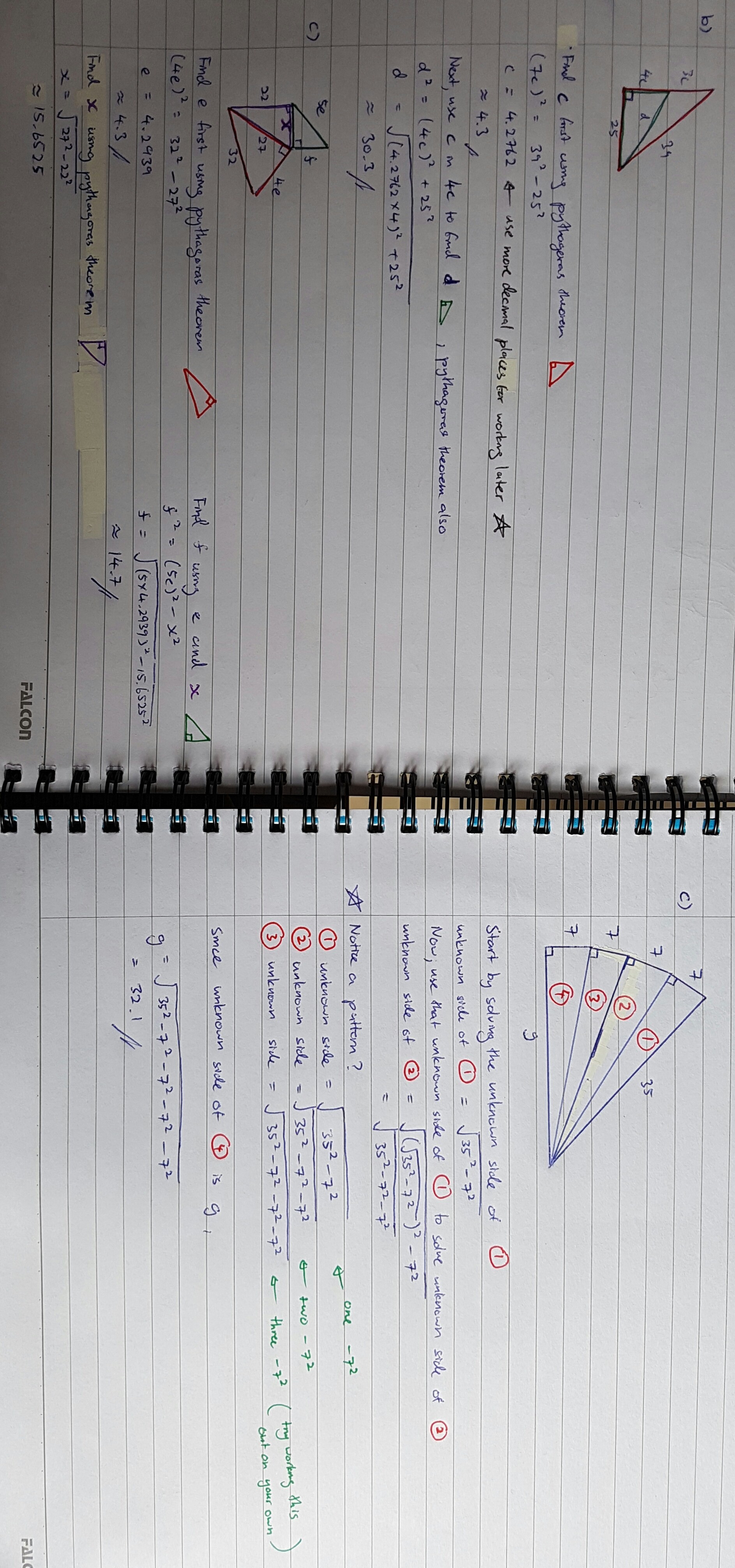Lim Han Quan's answer to Sher's Secondary 2 Maths question.
done
{{ upvoteCount }} Upvotes
clear
{{ downvoteCount * -1 }} Downvotes
These questions are basically all about pythagoras theorem, they follow a basic principle too - find the first unknown, then use that unknown to find the other unknowns. Note that the unknowns here are not neat numbers, so make sure to use more decimal places in your working when using one unknown to solve another.
For B) 2 unknowns - find e then find f
For C) 3 unknowns - find e, then o find f you need to find "x" which can be found using e
For D) You can use 2 methods to do this question
1st method is to find each and every unknown side, starting from the top to the bottom to finally get to g
OR
(Preferred because it looks neater and as shown in the working above)
2nd method is to proceed like the first, but instead of calculating out the value of the unknown sides, leave it in the formula form, this will allow you to see the pattern.
(Tip: Even if you stacked a 100 of those triangles together you'd still be able to solve just as fast.)
Hope this helps :)
For B) 2 unknowns - find e then find f
For C) 3 unknowns - find e, then o find f you need to find "x" which can be found using e
For D) You can use 2 methods to do this question
1st method is to find each and every unknown side, starting from the top to the bottom to finally get to g
OR
(Preferred because it looks neater and as shown in the working above)
2nd method is to proceed like the first, but instead of calculating out the value of the unknown sides, leave it in the formula form, this will allow you to see the pattern.
(Tip: Even if you stacked a 100 of those triangles together you'd still be able to solve just as fast.)
Hope this helps :)
Date Posted:
7 years ago


